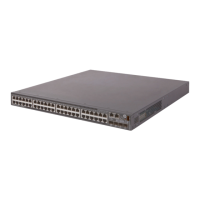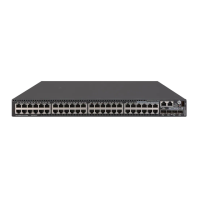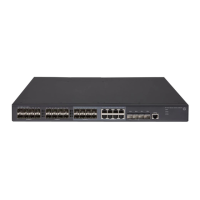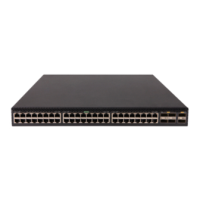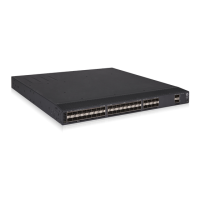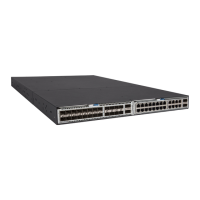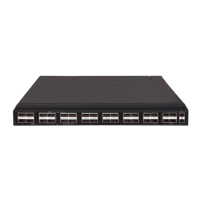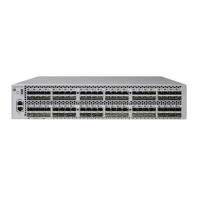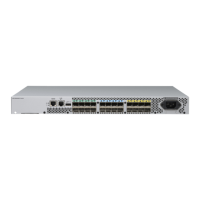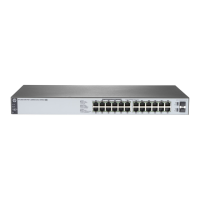106
The evaluation of voice quality depends on users' tolerance for voice quality. For users with higher
tolerance for voice quality, use the advantage-factor command to set an advantage factor. When
the system calculates the ICPIF value, it subtracts the advantage factor to modify ICPIF and MOS
values for voice quality evaluation.
The voice operation requires both the NQA server and the NQA client. Before you perform a voice
operation, configure a UDP listening service on the NQA server. For more information about UDP
listening service configuration, see "Configuring the NQA server."
The voice operation cannot repeat.
To configure the voice operation:
1. Enter system view.
N/A
2.
Create an NQA operation
and enter NQA operation
view.
nqa
entry
admin-name
operation-tag
By default, no NQA operations exist.
3. Specify
enter its view.
type voice
N/A
4. Specify
address of voice packets.
destination ip
ip-address
By default, no destination IP
address is configured.
The destination IP address must be
the same as the IP address of the
listening service on the NQA server.
5. Specify the destination port
of voice packets.
destination port
port-number
By default, no destination port
number is configured.
The destination port number must
be the same as the port number of
the listening service on the NQA
server.
6. (Optional.) Specify the codec
type.
codec-type
{
g711a
|
g711u
|
g729a
}
By default, the codec type is G.711
A-law.
7.
(Optional.) Set the
advantage factor for
calculating MOS and ICPIF
values.
advantage-factor
factor By default, the advantage factor is 0.
8.
(Optional.) Specify the
source IP address of voice
packets.
source ip
ip-address
By default, t
he packets take the
primary IP address of the output
interface as their source IP address.
The source IP address must be the
IP address of a local interface, and
the interface must be up. Otherwise,
no voice packets can be sent out.
9.
source port number of voice
packets.
source port
port-number
By default, no source port number is
specified.
10.
(Optional.) Set the payload
size for each voice packet.
data-size
size
B
y default, the voice packet size
varies by codec type. The default
packet size is 172 bytes for
G.711A-law and G.711 µ-law
codec
type, and 32 bytes for G.729 A-law
codec type.
11.
(Optional.) Specify the
payload fill string for voice
packets.
data-fill
string
The default payload fill string is the
00010203040506070809.
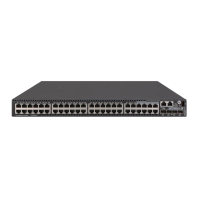
